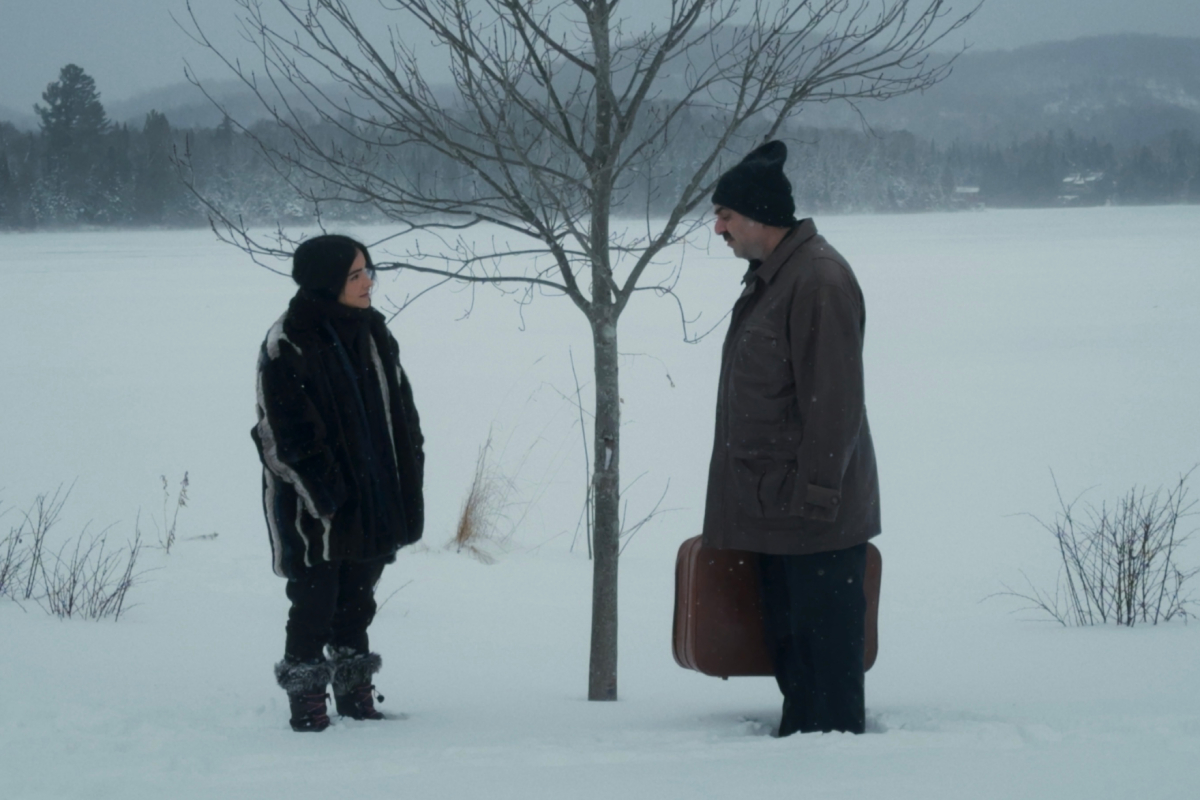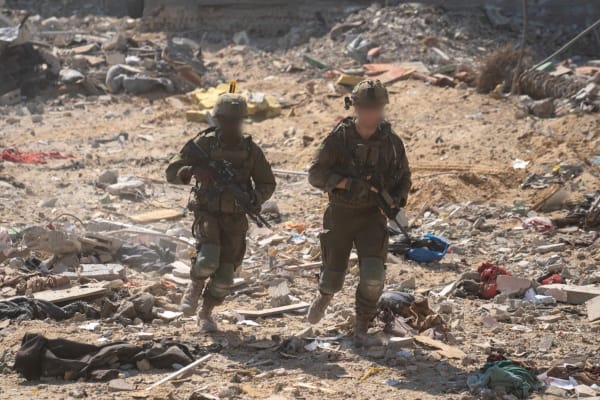Iranian-born filmmaker Abdolreza Kahani refers to his current process as “solo cinema,” and with good reason: A one-man band of director, producer, writer, editor and DP, he shoots on an iPhone with a single microphone, no further crew, and no budget to speak of. But “solo” isn’t to say “isolated,” and his latest film “Mortician” expresses a melancholy need for human bonds in times of distance and disconnection. Produced in exile in Canada, and accordingly centered on Iranian expats and dissidents adrift in snowy North American climes, it’s a trenchant, witty and penetratingly sad black comedy on the difficulty of escaping the Iranian regime — even halfway across the world.
A prolific, iconoclastic artist who has been steadily making films since the early 2000s, Kahani won awards at Thessaloniki and Karlovy Vary earlier in his career, but has enjoyed a lower profile of late. That could change with “Mortician,” his second film in as many years to premiere at the Edinburgh Film Festival, and winner of the fest’s audience-voted top prize — which comes with a £50,000 check that could fund multiple future features made in the mode of his latest. Visit Films is handling sales on the title, which punches well above the weight of its scrappy production with its brisk storytelling, compositional elegance and the crashing emotional wallop of its finale. Kahani’s work is of a piece with that of bigger-name compatriots like Jafar Panahi and Mohammad Rasoulof in its protest against the Iranian government, though his droll-to-devastating approach is very much his own.
Popular on Variety
“Mortician” reunites Kahadi with Nima Sadr, his leading man from last year’s “A Shrine” — a gently hulking, wonderfully lugubrious figure with a sloping mustache that pulls his whole face into a permanently mournful cast. (“A Shrine” was his screen debut; in just two films, he’s established a distinct and lingering screen presence.) He plays Mojtaba, a former Tehran resident living a sparse, solitary life in a wintry, unidentified Canadian city. Eking out a living washing corpses awaiting burial, in line with Muslim tradition, he sends most of his earnings back home to his family in Iran. It’s meager work, and about to get more so. The funeral company that employs him is closing down, and his boss — who has found a new job doing, he admits, nothing at all — advises him to return to Iran.
Scrabbling for an alternative gig, he finds there are other bodies that require his skills, not all of them deceased. A most generous and peculiar offer comes from Jana (Iranian-born, U.K.-based pop singer Gola), a musician and fellow exile persecuted by the Iranian government for her fiery anti-authoritarian songs: She is planning to kill herself at some point in the near future, and wants Mojtaba to make her a beautiful corpse when the time comes. Jana loves life, she is quick to clarify — but suicide is the most prominent and public form of protest available to her, given her reliance on video-based social media to communicate with the outside world from her icy rural cottage.
It’s a premise that leans toward dystopian satire, but Kahani plays it mostly straight and humane, albeit with flickers of dry behavioral humor as this awkwardly matched pair — one glamorous and deep-feeling, one beigely passive — gradually grow to understand each other, and how they’ve been mutually betrayed by their distant homeland, which continues to infringe on their freedom in far-reaching ways. “People aren’t like you — they’re complex,” Jana says to Mojtaba, more kindly than the sentiment implies, and he doesn’t altogether disagree. “I tend to become like the people I work for, but you’re always yourself,” he admits with shy admiration.
Other variously tart or poignant vignettes outline Mojtaba’s generally uneasy interactions with other colleagues or clients in the ex-Iranian community. But “Mortician” is for the most part an intimate, exploratory two-hander, as a macabre business arrangement evolves into a closer, more interdependent relationship between two people caught between the same two worlds — though their connection stops shy of improbable romance. The director frequently frames the pair in tight, fraught two-shots: His pocket-device cinematography, however economical, is never careless, attentive to the pale desolation of the surrounding landscape and the stark dimness of Jana’s home.
In a film that doesn’t skimp on fine details, meanwhile, the closing credits are essential to its message and experience — not merely a short scroll of names, but an idiosyncratic directorial manifesto in which Kahani individually honors his collaborators, earnestly apologizes to actors who didn’t make the final cut, and finally thanks himself “for refusing to take money from the government of Iran.” Other benefactors may step forward, though the truly independent “Mortician” stands at once alone and together with the uprooted.





